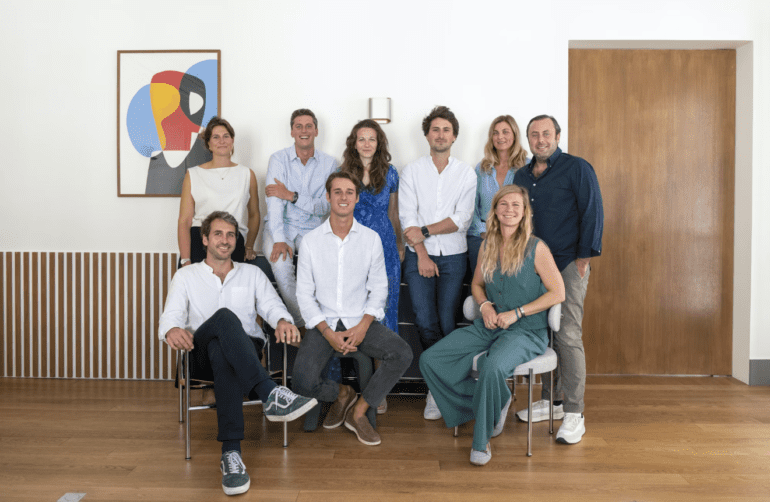TL;DR:
- Founders Future secures €75 million for its second fund, targeting €150 million by the end of 2024.
- The fund, relying on entrepreneurs and family offices, focuses on climate and AI startups, allocating up to 60% of capital for pre-seed to Series A investments.
- The remaining 40% is dedicated to backing existing portfolio companies at Series B to pre-IPO stages.
- A strategic pivot sees Founders Future shifting from consumer-focused D2C brands to B2B startups.
- The fund is actively exploring opportunities in Southern Europe and the Nordics, recognizing untapped potential in these regions.
Main AI News:
Founders Future, a prominent player in France’s startup ecosystem known as a “superangel,” has successfully secured €75 million for its second fund and is on track to reach a total of €150 million with a planned final closing by the end of 2024. Unlike traditional venture funds, Founders Future relies on the support of entrepreneurs and family offices rather than institutional investors or government funding. This unique approach allows them to maintain their agility and focus on promising early-stage startups.
The fund’s primary objective is to allocate up to 60% of its capital to new investments in climate and AI startups at various stages, ranging from pre-seed to Series A. Investment tickets will be in the range of €250k to €3 million, and it is expected that this fund will fuel approximately 60 investments over its 10-year lifecycle. The remaining 40% of the fund will be dedicated to supporting existing portfolio companies, primarily at the Series B to pre-IPO stages, with investment tickets ranging from €1 million to €7.5 million. The fund anticipates making 15 to 20 investments in this category over the next decade.
Marc Menasé, CEO of Founders Future, emphasizes, “These investments will be directed towards companies that have already identified their product-market fit, exhibit rapid growth, and have progressed beyond a pre-Series B stage.” He further added, “We currently have a robust pipeline of potential candidates within our portfolio of approximately 100 companies who align with this investment strategy.”
A Shift Towards Impact Startups
Founded in 2018 with an initial fund of €50 million, Founders Future has a history of supporting early-stage startups working on technologies that shape the future of various sectors, including food, work, money, and health. In 2021, they expanded their commitment by launching a €32 million seed fund dedicated exclusively to impact startups.
Their portfolio features a diverse array of companies across industries, including French fintech unicorn Lydia, “buy now, pay later” rising star Alma, food app Yuka, and UK-based dark kitchen startup Taster. However, with this new fund, Founders Future is directing its attention firmly towards climate and AI, recognizing the pivotal role technology plays in these domains. Menasé states, “We see fundamental shifts in our society where technology can make a significant impact, not only in AI but also in energy transition and climate-related solutions.”
B2B Focus and D2C Shift
One notable shift with this fund is Founders Future’s pivot towards B2B (business-to-business) startups, contrasting with their previous portfolio, which prominently featured consumer-focused companies. Menasé clarifies that the fund will no longer back direct-to-consumer (D2C) brands, a dominant focus in their initial portfolio. Notable D2C investments included Austrian flavored water startup Waterdrop and French bedsheet manufacturer Bonsoirs. This shift aligns with a broader trend among European investors who are diversifying their portfolios beyond consumer-focused ventures.
Menasé explains, “The direct-to-consumer market has seen substantial growth, and many opportunities have already been explored.” With this in mind, Founders Future is strategically repositioning itself to capture the promising potential within the B2B landscape.
Pan-European Expansion
Founders Future is actively seeking opportunities across Europe, with a specific interest in targeting countries in Southern Europe and the Nordics. In Southern Europe, they recognize an opportunity due to the region’s relatively less mature startup ecosystem. Menasé notes, “There is an untapped potential in Southern Europe, akin to what we observed in France a few years ago.”
In the Nordics, Founders Future aims to support startups described as “natively international” as they expand into new markets. This approach aligns with their vision of fostering innovation and entrepreneurship on a pan-European scale.
Conclusion:
Founders Future’s substantial fund allocation for climate and AI startups underscores their commitment to supporting transformative technologies. Their strategic shift towards B2B investments and exploration of emerging markets in Southern Europe and the Nordics positions them to play a significant role in shaping the European startup landscape in these sectors.

